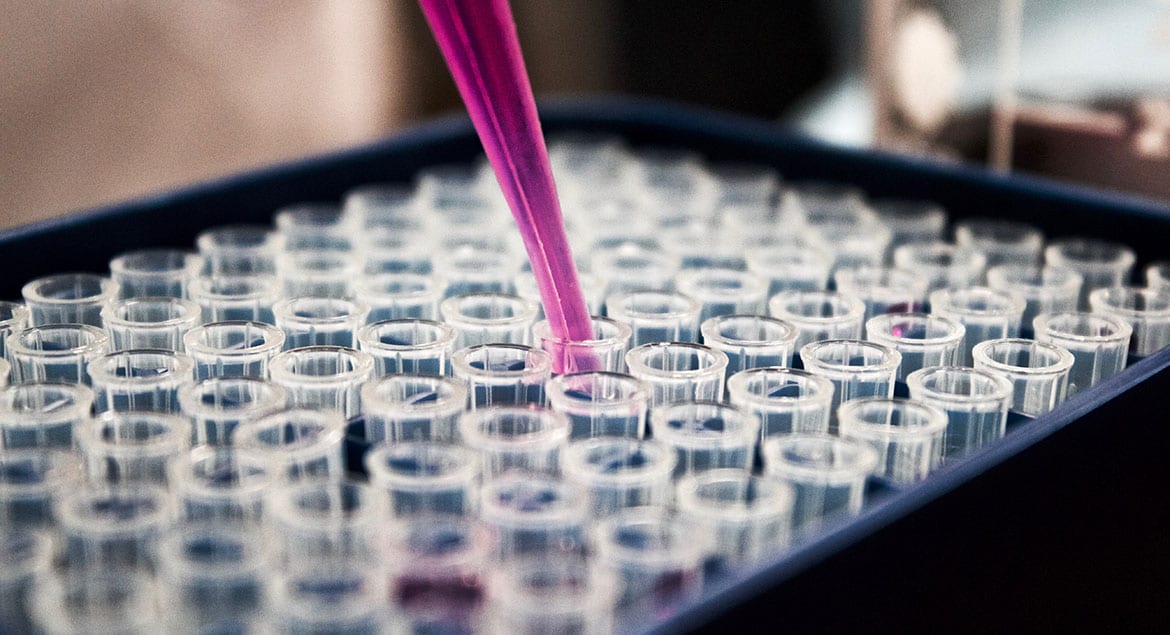In late 2018, a Chinese scientist dropped a bombshell when he announced the birth of the world’s first gene-edited twins, and the scientific community is still grappling with the aftermath and ethical implications.
The public lecture series “Crossroads of Ideas” will address the scientific controversy on Tuesday, April 9 (rescheduled from Feb. 12 due to weather) with “From CRISPR Twins to Real Therapies,” a panel featuring UW–Madison and Morgridge Institute experts.
The panel will cover the topic from a variety of angles, discussing what happened in China and the global response, the ethics of gene editing, the current state of the technology and opportunities for applications, as well as the public attitudes around this scientific issue.
Alta Charo, a professor of law and bioethics and one of the panelists, says while there’s general agreement that the work on gene-edited twins was unnecessary and sloppily done, there’s a spectrum of opinions about what it means for the future.
“The reactions have ranged from ‘the sky is falling and we’re about to become Gattaca … to ‘this was a single rogue scientist who did something premature and unethical, but not necessarily a harbinger of wide-scale abuse of this technology,’ Charo says. “It goes all over the map.”
Dominique Brossard, chair in the department of life sciences communication and Morgridge affiliate, will moderate the panel, which, in addition to Charo, includes Jeff Jones, an associate professor of obstetrics and gynecology; Pilar Ossorio, Morgridge bioethicist in residence and professor of law and bioethics; Kris Saha, WID faculty member and professor of biomedical engineering; and Dietram Scheufele, professor of life sciences communication and Morgridge affiliate.
The event will take place at the Discovery Building, in the Town Center’s DeLuca Forum at 7 p.m. and is free and open to the public.
Additional Spring 2019 Crossroads of Ideas lectures include:
March 5: “Approaching MLK’s Dream: Scientifically Tested Methods to Reduce Racism and Promote Inclusivity”
Using randomized controlled trials, scientists have started to examine the effectiveness of different pro-diversity initiatives. Markus Brauer, professor in the UW–Madison department of psychology, will report cutting-edge research from this new field of diversity science.
March 26: “Space: The Final (Aquatic) Frontier
The sudden increase in automated sensors has allowed environmental scientists to measure and monitor the natural world in ways and at frequencies not previously possible. Emily Stanley, professor in integrative biology, will share how her research group has used these devices to measure changes over space to gain new perspectives and understanding of patterns and processes within aquatic environments.
May 7: Covert Coordination: How Russians and “Suspicious” Groups Used Social Media
to Interfere in the U.S. Elections
By tracking 87 million digital ads exposed to 17,000 individuals of the U.S. voting age population, journalism professor Young Mie Kim and her research team, Project DATA (Digital Ad Tracking & Analysis), uncovered Russian interference in the elections and assessed the likelihood of coordination between Russian and unidentifiable “suspicious” groups.
Crossroads of Ideas regularly invites speakers and discussions on challenging and engaging social science topics such as politics, policy issues, ethics, public perceptions, law and science and society.
All forums are held at 7 p.m. at the Discovery Building, 330 N. Orchard St. in Madison. Parking is available in nearby lots at Union South, the Biotechnology Center and the engineering campus. The series is co-presented by the Morgridge Institute for Research, the Wisconsin Institute for Discovery and the Wisconsin Alumni Research Foundation.
